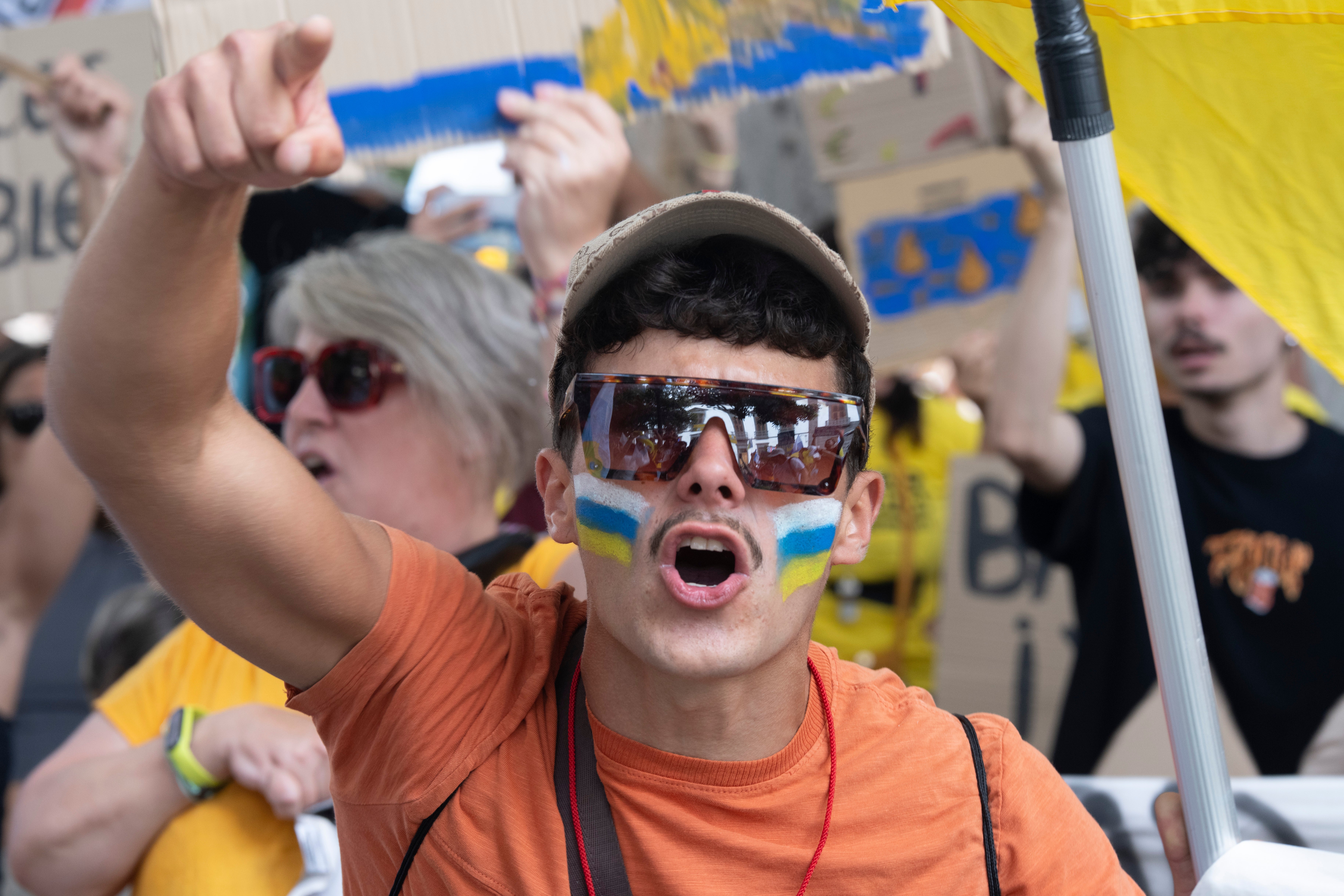Spain half-term holidays warning as anti-tourist protests planned on popular islands
Activists say ‘Ibiza cannot take anymore’ while Mallorca is at risk of becoming a ‘luxury resort’
Your support helps us to tell the story
From reproductive rights to climate change to Big Tech, The Independent is on the ground when the story is developing. Whether it's investigating the financials of Elon Musk's pro-Trump PAC or producing our latest documentary, 'The A Word', which shines a light on the American women fighting for reproductive rights, we know how important it is to parse out the facts from the messaging.
At such a critical moment in US history, we need reporters on the ground. Your donation allows us to keep sending journalists to speak to both sides of the story.
The Independent is trusted by Americans across the entire political spectrum. And unlike many other quality news outlets, we choose not to lock Americans out of our reporting and analysis with paywalls. We believe quality journalism should be available to everyone, paid for by those who can afford it.
Your support makes all the difference.British travellers heading to Spain’s Balearic Islands for a half-term holiday could see their trips disrupted as mass anti-tourism protests are planned across several popular destinations.
Demonstrations in Ibiza are set to begin on 24 May, which will be followed by action in Mallorca on 27 May – a time when many UK travellers will be going abroad – and comes after similar protests in the Canary Islands at the end of April.
Activists from the Prou Eivissa (Enough Ibiza) group said that the island “cannot take anymore” and it needed to draw attention to the “negative impacts” that “uncontrolled tourism” was having.

Among its goals, Prou Evissa is calling for a law limiting vehicles entering Ibiza and incentives for hoteliers to reduce capacity.
“We consider it essential to achieve a balance between residents and tourists, and therefore we believe that the legitimate expression of the people of Ibiza can guarantee a sustainable future for all,” it said.
Rising numbers of visitors to Mallorca have prompted action, with the organisers of that island’s protest calling for “the right to housing, the protection of the territory, of our own language and culture”.
They are demanding “accountability from institutions, because we want to live in our home, to protect our lives and because we do not want Majorca to become a luxury resort”, activists told the Majorca Daily Bulletin.

More than 16 million people visited the region in 2022, with tourism accounting for around 40 per cent of its GDP, accoring to Circle Economy.
Holidaymakers have already been warned about the region’s crackdown on problem tourists, with a new overnight ban on alcohol in the busiest resorts.
Shops in Llucmajor, Palma and Calvia (including Magaluf) in Mallorca and Sant Antoni in Ibiza are unable to sell booze – though the rule doesn’t apply to bars, clubs and restaurants.
It comes under as part of a toughening of a 2020 law designed to curb alcohol-fuelled holidays, and also sees party boats banned from operating within one nautical mile of designated areas.
The legislation comes with a £14m funding package for security, inspections and advertising, the Balearic government said. Officials say it is part of an overall plan to promote responsible tourism, with the new law to remain in place until 2027.
Earlier this month, Marga Prohens, president of the Balearic Islands, posted on X/Twitter that the government “understands that limits are necessary, we must make possible coexistence between tourist activity and the well-being of the residents of the Balearic Islands”.
Thousands of people took to the streets in the Canary Islands to protest against mass tourism in April, with demonstrators calling for Tenerife to temporarily limit tourist arrivals to stem a boom in short-term holiday rentals and hotel construction that is driving up housing costs for locals.
Holding placards reading "People live here" and "We don’t want to see our island die", campaigners said changes must be made to the tourism industry.
"It’s not a message against the tourist, but against a tourism model that doesn’t benefit this land and needs to be changed," one of the protesters said during the march in Tenerife’s capital, Santa Cruz de Tenerife.
Greece has also seen backlash to tourism, with reports of graffiti appearing on walls reading “tourist go home” and “no tourists no hipsters”.
Join our commenting forum
Join thought-provoking conversations, follow other Independent readers and see their replies
0Comments